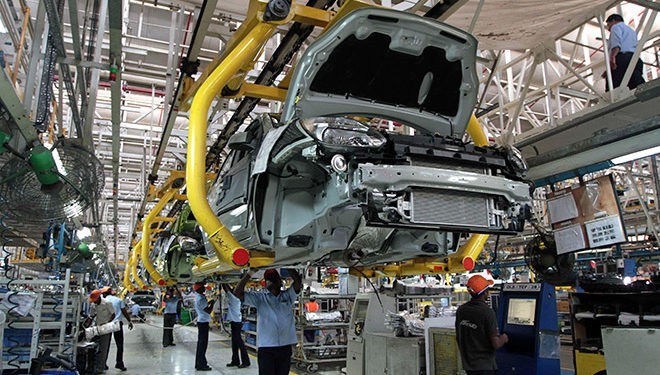
Image credit: Money Compass
KUALA LUMPUR: Business conditions for Malaysian manufacturers in September were at its weakest extent since January this year, as falling demand led to stronger moderation in production, data from S&P Global Malaysia Manufacturing Purchasing Manager Index (PMI) survey showed.
"Malaysian manufacturers continued to endure a challenging time at the end of the third quarter, with reports of demand weakness widespread in the latest PMI survey, causing stronger moderations in output, new orders and exports," S&P Global Market Intelligence economist Usamah Bhatti said in the report.
The seasonally adjusted PMI was down to 46.8 in September, from 47.8 in August, signalling further challenges for firms in the manufacturing sector.
He added that although the latest figures are still representative of growth in official gross domestic product numbers, the current soft-patch looks set to continue over the coming months.
Data for the level of outstanding business signalled one of the steepest depletions in backlogs in the series history amid a sustained lack of new orders.
"Reflecting the weakness, firms are increasingly cautious regarding spending, pulling back on input purchases, stock holdings and employment levels," Usamah said.
Looking at the relationship between the PMI data and official GDP statistics, S&P Global Manufacturing's report surmised that third quarter figures suggest that year-on-year GDP growth eased further than that seen in the second quarter. The data are also consistent with officialmanufacturing production remaining broadly stable on an annual basis.
Output and new orders both moderated to a greater extent than in August, while new export orders fell at the third-strongest pace in the series history.
Moreover, employment levels fell for the fifth month running while purchasing activity softened to the greatest degree since September 2021. This weakness in demand for inputs also fed through into stocks of purchases.
Although input costs rose, the pace of inflation was muted in the context of the past three years. Where input prices increased, this was linked to higher raw material costs.
That said, output prices were raised at a sharper rate in September, with the rate of charge inflation the strongest seen for ten months.
Malaysian manufacturers however are increasingly optimistic that the current demand weakness will fade.
The overall degree of optimism reached the highest since May. Positive sentiment was commonly attributed to hopes for an improved demand environment that would promote new order inflows and business opportunities. That said, firms cited uncertainty regarding the timing of the recovery.
Source: https://www.nst.com.my/business/economy/2023/10/961996/business-conditions-malaysian-manufacturers-its-weakest-january

